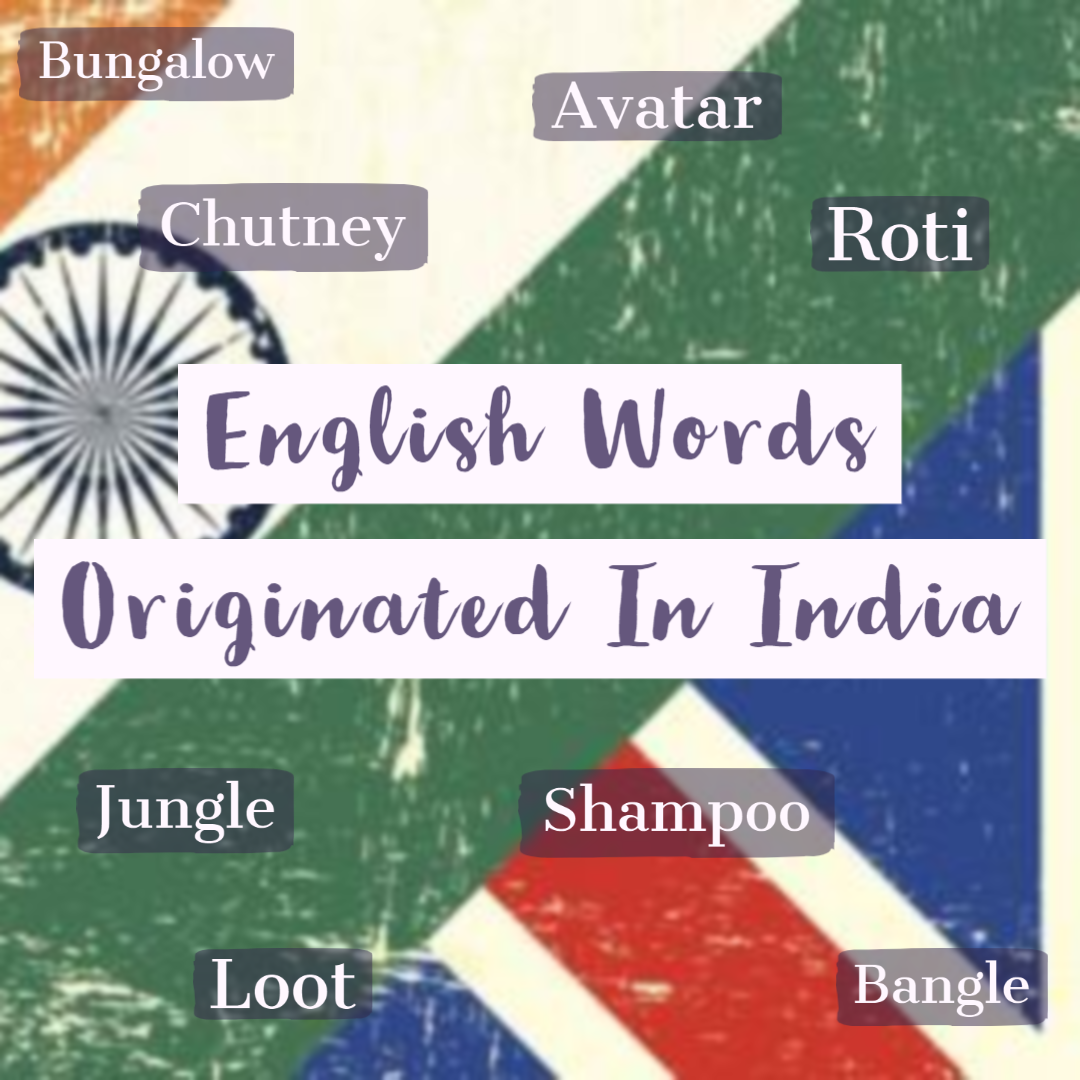Focusing solely on the British rule, India’s colonial history is part of their reflection today. The relationship between Britain and India is visible today in the English language spoken across the world. Several common terms of this language have evolved from Hindi, Urdu and Sanskrit, standing as yet another example in time of the cultural and linguistic intermingling of this melting pot of a world. Over the centuries, several words of Indian origins have sneaked into the English language. When you rule a country for those many years, you are bound to pick up some local words, aren’t you?
The following is a list of some English words whose origins lie in India :
1. Bungalow

In the 17th century when one-storey cottage-like houses were built in Bengal for early European settlers, the source of the common English term bungalow can be traced to the Hindi word bangla.
2. Bangle

Bangle comes from the Hindi word bangri. It first made its appearance in the late 18th century. A rigid, ornamental band, normally worn around the wrist.
3. Avatar
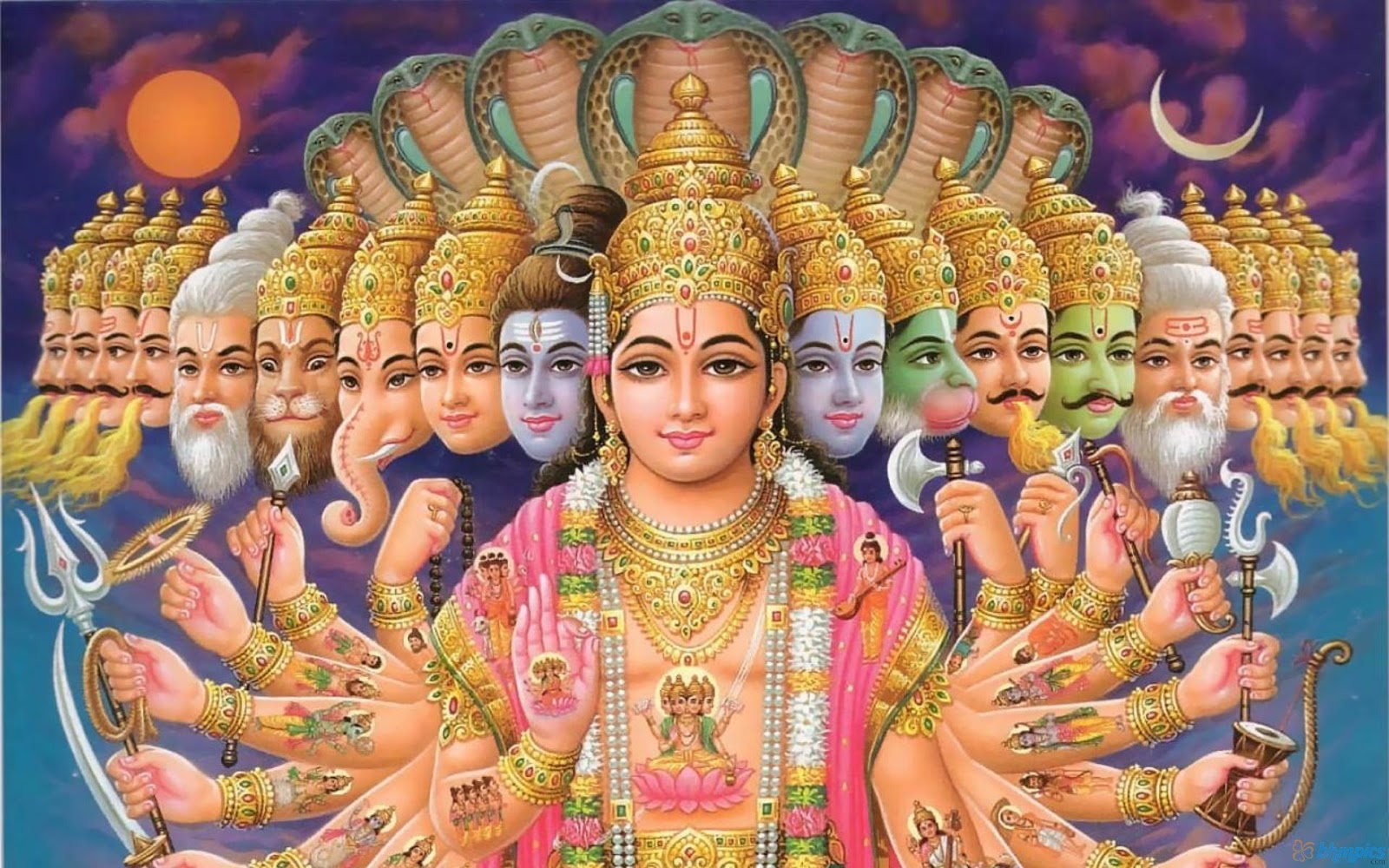
The word first appeared in English in the 18th century and derives ultimately from the Sanskrit word avatara meaning descent. In Hinduism, an avatar is the manifestation in human or animal form of a god, especially Vishnu.
4. Chutney

This word entered the English language in the 19th century and derives from the Hindi word chatni, whose meaning is more or less the same as the English word.
5. Roti

Our very own roti, better known in the English-speaking world as Indian bread, is also part of the Oxford English Dictionary.
6. Juggernaut
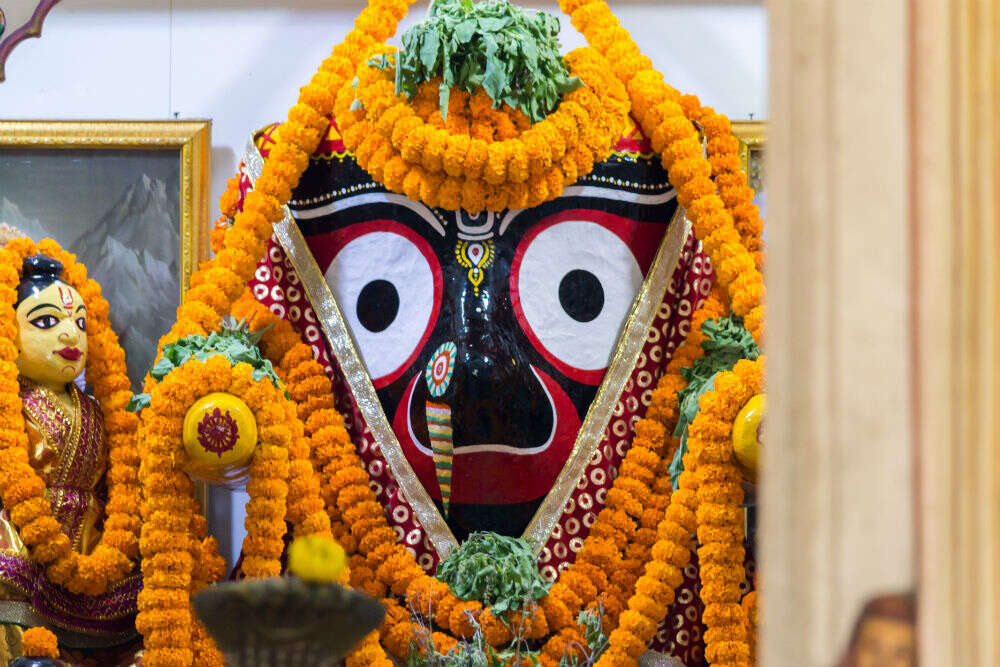
The word arrived in English in the 19th century and derives from the word Jagannath, a form of the Hindu deity Vishnu. Juggernaut is another word for ‘a huge, powerful, and overwhelming force’.
7. Jungle

It derives from the Hindi word jangal meaning a forest and began to be used in English during the 18th century.
8. Loot
The word derives from the Hindi verb Lut, meaning to plunder or steal. Loot, which as a noun means stolen money or valuables, and as a verb acts as a synonym for steal.
9. Shampoo

A soapy liquid for washing the hair. It arrived in English in the 18th century and derives from the Hindi word champo, meaning to squeeze, knead or massage.
10. Dekko

A quick look or glance. Originally used by the British army in India in the late 19th century, this one is a bit easy to fathom. It draws its meaning from the Hindi dekho or look, the imperative of dekhna.
11. Gunny

A rough-hewn fabric made of jute and typically used as sacking, it comes from the Marathi and Sanskrit goni. Its first recorded use in English dates back to the 18th century.
12. Curry
A gravy-based dish made with meat and/or vegetables and strong spices. Its origin can be traced back to the late 16th century, from the Tamil kari.There is another possible and lesser-known explanation which expounds that it comes from the root kar, meaning black, making curry a derivative that saw considerable mutation in its meaning and usage.
13. Candy

Sweet-enthusiasts munching down on crystallised sugar might never know that that candy has travelled a long way, in terms of the roots of its origin. Starting from the Sanskrit khanda, another word for sugar, it journeyed to Persia where it became qandi, meaning cane sugar. Making its way to France, old French refers to sugar candy as sucre candi, which then became candy in English.
14. Cheetah

The Hindi word chita, meaning leopard, finds its origin in the Sanskrit word chitraka, meaning hunting leopard or tiger, which literally translates to speckled or distinctively marked.
15. Bandana
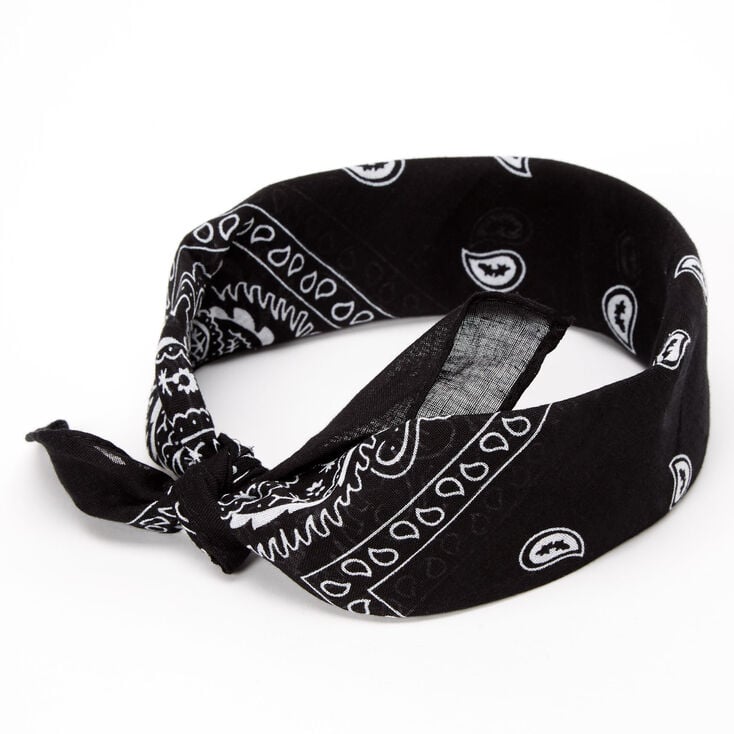
The method of dyeing fabric by tying it in multiple places is known as bandhnu in Hindi, which is where the large, colourful handkerchiefs/bandanas get their name from.
16. Cashmere

Those soft, smooth shawls with intricate designs in various colours find their name dating back to the 1680s, christened by the old spelling of the Himalayan state Kashmir, where wool for this garment came from long-haired goats.
17. Chit

All those who spent more time in attempts to waste time rather than paying attention in class have encountered the word chit before, referring to note-passing. The Hindi word chitthi, meaning letter, gifts chit its name.
18. Veranda

Featuring in both Portuguese and Hindi as a sheltered gallery or terrace attached to a house, the word varanda stands as the source of the term veranda, first seen in the English language in the 18th century.
19. Mongoose
The term used to describe the carnivorous animal known for its ability to kill venomous snakes can be traced back to mangus, the Marathi word for the same creature.
20. Punch

Its roots can be traced back to the Sanskrit panca which literally means ‘five or five kinds of’ (because the drink had five ingredients).
Wrapping Up
Have you used any of these words and realized that it is not actually an English word and that these words were originated in India? Let us know down below.
Read more on Social Media Addiction.
Read more on the 7 Wonders of India.
